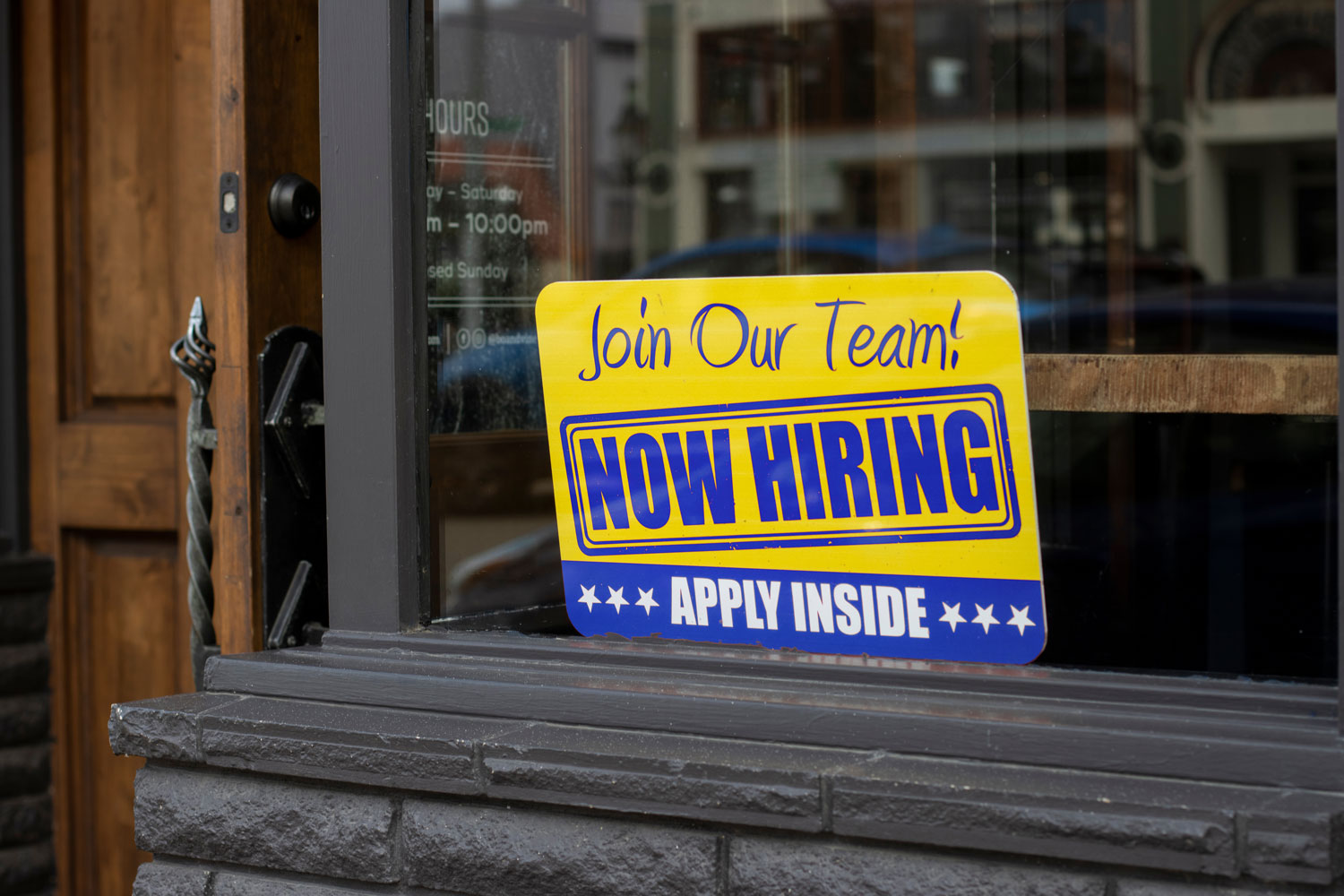How 3 Northern Alabama Industries Are Combating 2022 Labor Shortages

Take a short drive around Huntsville, and you might see several “Now Hiring” signs posted in company windows.
When COVID-19 first swept across the United States, several industries laid off or furloughed workers at record rates. Now, the job market has largely recovered, but businesses face new challenges in finding workers.
In November, Alabama Department of Labor data showed that the state had 28,657 more online job postings than unemployed people. Experts predict the gap will continue to grow in the coming months.
Local businesses must rethink their hiring, benefits and operations to stay competitive. Here’s how three Huntsville industries have pivoted their recruiting strategies to find the help they need amid nationwide labor shortages.
Healthcare
Sweeping labor shortages have hit few industries as hard as they’ve hit hospitals.
One in five U.S. healthcare workers left their jobs between the start of the pandemic and November 2021, The Atlantic reported. In January, there were more than 3,600 open positions for registered nurses in Alabama alone, according to the Montgomery Advertiser.
Alabama battled nurse shortages well before the pandemic began. Over the past two years, early retirements, high rates of burnout and increased volumes of patients have further exacerbated the issue.
As one of the state’s largest employers, Huntsville Hospital has responded to the nursing shortage by adjusting its childcare services, increasing wages and starting its recruiting efforts sooner by having an active presence at career fairs and presentations.
Recently, Huntsville Hospital teamed up with J.F. Drake State Community and Technical College to help meet the need for more nurses in Northern Alabama.
They introduced the joint LPN Launch Program, a three-semester LPN program taught by Drake State that feeds into Huntsville Hospital after graduation. Admitted students receive $15,000 in financial assistance for tuition and educational expenses in exchange for committing to work for three years at Huntsville Hospital.
Hospitality
When people stopped traveling because of the pandemic, the hospitality industry shuttered for months before seeing positive trends.
A report by the American Hotel & Lodging Association (AHLA) found that the hospitality industry lost nearly 7.5 million jobs at the pandemic’s peak, with 9 in 10 hotels laying off or furloughing workers. As of August 2020, 4 of 10 hotel employees were still not working, and roughly two-thirds of hotels were at 50 percent capacity or lower.
The hospitality industry is finally beginning to bounce back but are now struggling to bolster their workforces to meet the returning demand for recreation and hospitality services.
Although the leisure and hospitality industry has led the national job gains in recent months, the World Travel & Tourism Council predicts that 1 in 13 jobs in the U.S. travel sector will go unfilled this year.
In addition to providing higher wages, hotels are also offering more work-from-home positions. Though many hospitality jobs have to be in person, those with flexibility are increasingly going virtual. This shift to hybrid schedules allows the hospitality sector to circumvent lingering travel and safety restrictions that may affect talent mobility.
Local hotels like the Renaissance in Montgomery have even started hiring third-party housekeeping providers instead of hiring for in-house positions. Others are outsourcing some of their operations to third-party logistics companies, including the responsibilities of receiving deliveries, storing furniture, fixtures and equipment and installing new items in hotel rooms.
Restaurant
Roughly half of restaurant operators expect recruiting and retention to be their biggest challenge this year, according to a National Restaurant Association survey. Nearly 7 in 10 operators said they don’t have enough employees to meet demand, and they don’t predict that will change anytime this year.
Some restaurants closed their doors after struggling to find cooks and servers, including 75-year-old Alabama seafood restaurant Bayley’s. Others began adjusting their opening and closing times, reducing the number of days they’re open and even testing automated chefs.
The restaurant industry began experimenting with in-house technology and automation through online ordering and self-service kiosks. It’s no surprise that a restaurant in Rocket City made national headlines for taking automating one step further. Dipwich, a local sandwich shop, recently introduced a cookie-making robot that can churn out 60 made-to-order in an hour.
Restaurants are also offering starting or sign-on bonuses, contributing to a national trend that shows no signs of stopping. The Conference Board found that job postings with mentions of a sign-on bonus more than doubled between the pandemic’s start and October 2021, with the surge concentrated among positions that don’t require a college degree, such as restaurant openings.
As COVID-19 and its impact linger, companies face an uphill battle to return to pre-pandemic employment levels. Huntsville’s burgeoning industries have the potential to lead the way to recovery.
Struggling to find qualified candidates for your open positions? Take the pressure off your in-house team by outsourcing your warehousing and logistics to Armstrong – Huntsville. Our third-party logistics (3PL) services allow you to effectively scale your operations without competing for limited talent. Get started today by calling 256.795.2414 or requesting a free quote online.